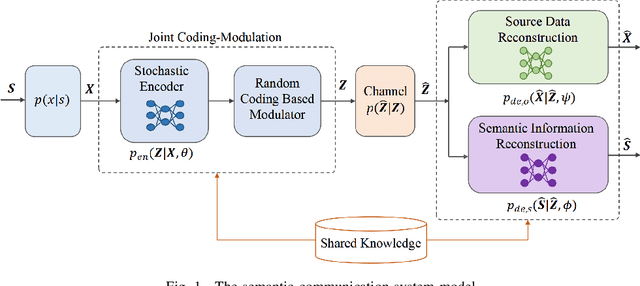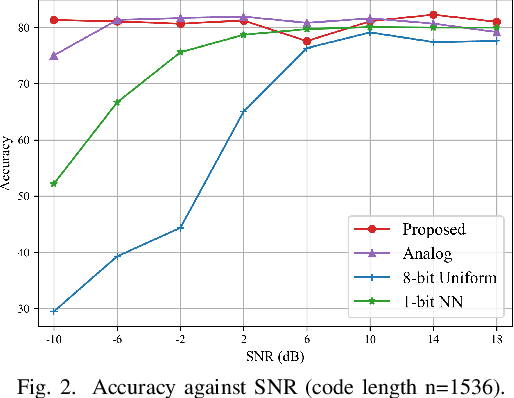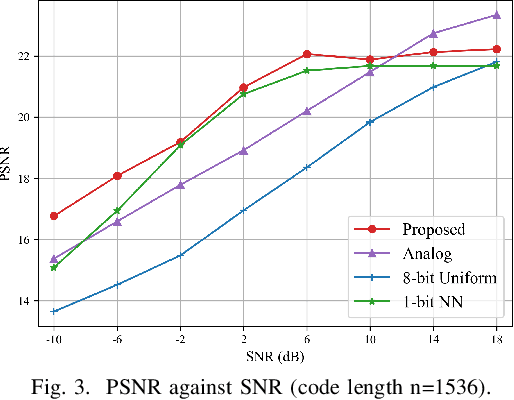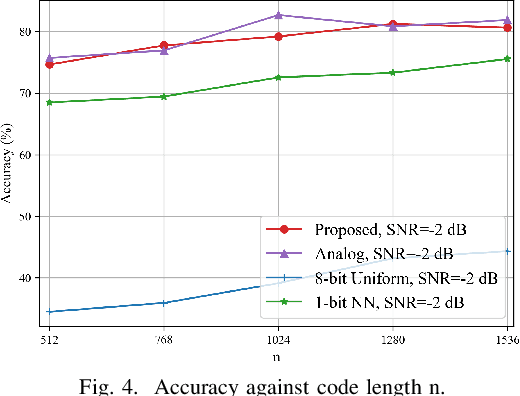Learning Based Joint Coding-Modulation for Digital Semantic Communication Systems
Paper and Code
Aug 11, 2022



In learning-based semantic communications, neural networks have replaced different building blocks in traditional communication systems. However, the digital modulation still remains a challenge for neural networks. The intrinsic mechanism of neural network based digital modulation is mapping continuous output of the neural network encoder into discrete constellation symbols, which is a non-differentiable function that cannot be trained with existing gradient descend algorithms. To overcome this challenge, in this paper we develop a joint coding-modulation scheme for digital semantic communications with BPSK modulation. In our method, the neural network outputs the likelihood of each constellation point, instead of having a concrete mapping. A random code rather than a deterministic code is hence used, which preserves more information for the symbols with a close likelihood on each constellation point. The joint coding-modulation design can match the modulation process with channel states, and hence improve the performance of digital semantic communications. Experiment results show that our method outperforms existing digital modulation methods in semantic communications over a wide range of SNR, and outperforms neural network based analog modulation method in low SNR regime.
 Add to Chrome
Add to Chrome Add to Firefox
Add to Firefox Add to Edge
Add to Edge